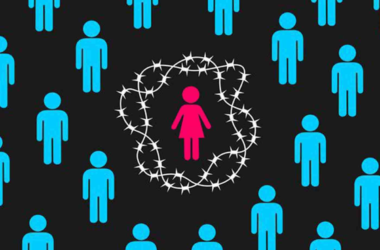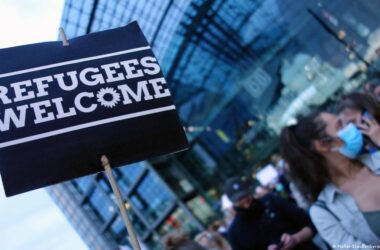Resisting silence Sepideh Afshar, Opinion Editor Resistance, to me, is to be vocal about the injustices you see and experience. For about a year, I was part of a sorority at McGill. In this predominantly white space, I found myself silenced concerning the overt racism I was experiencing. I felt[Read More…]
Commentary
Between climate denial and climate anxiety
During their time occupying the Arts Building, Divest McGill screened movies and documentaries shining light on the climate emergency. As the chilling images of fires, floods, and famines flashed across screens, the air became heavy. Silence reigned, and only a few deep breaths disturbed it from time to time. It[Read More…]
The threat of incel violence runs deeper than we think
Content warning: misogynist violence, white supremacist terrorism In February 2018, a young man stabbed a woman in a Toronto massage parlour. That same year, another man killed 10 people in a van attack in Toronto. In December 1989, a man barged into Montreal’s École Polytechnique just a few miles away[Read More…]
Open Letter from Jewish students on the Palestinian Solidarity Policy
To the McGill Community, Deputy Provost Fabrice Labeau, and the McGill Administration, As a group of Jewish students within the McGill community, we are writing to reaffirm our support for the Students’ Society of McGill University (SSMU) Palestine Solidarity Policy in the wake of Deputy Provost Fabrice Labeau’s response to[Read More…]
The adoption of the Palestine Solidarity Policy is a historic victory
On March 21, the Palestine Solidarity Policy was overwhelmingly approved by the undergraduate students of McGill University in the Winter 2022 Referendum, garnering a 71 per cent “yes” vote. The policy mandates the Students’ Society of McGill University (SSMU) to campaign for McGill University to condemn Canary Mission and other[Read More…]
The selective humanity in Canada’s refugee policy
Canada’s open-arms response to the recent Ukrainian refugee crisis is, rightfully, a point of pride for Canadians. Refugees of all backgrounds face unimaginable challenges through no fault of their own, from dangerous sea crossings to lasting mental trauma. Countries that recognize these challenges and contribute their attention and resources to[Read More…]
Redressing the history of medical injustice at McGill
Content warning: Enslavement, medical abuse, racial and colonial violence McGill’s troubled history of abuse and complicity in violence toward Black, Indigenous, and disabled people is nothing new. James McGill enslaved at least three Black people and two Indigenous children, an increasingly recognized and discussed reality within the community, especially following[Read More…]
Sensitive course content requires careful instruction
CW: suicide, self-harm Lecture recordings obtained by The McGill Tribune from a Winter 2022 PSYC 302 (Psychology of Pain) class by professor Jeffrey Mogil reveal him joking about suicide and self-harm, and describing to students the most effective way to shoot themselves. Mogil is a professor in the psychology department[Read More…]
For a better future, McGill must learn from Black history
Every February, Black History Month comes around with growing support, yet there is still room for growth on behalf of institutions and individuals. Oftentimes, corporations and institutions appear to care about Black history, while truly not doing much good for anyone. These institutions shape Black History Month increasingly around Black[Read More…]
To strip or not to strip: The power of political nudity
Content warning: Mentions of sexual violence Activism is an artform. Inspiring and resonating with enough people to make a difference often demands human connection through loud and creative means. Like spoken or written words, nudity carries endless potential for representing a cause, both within and beyond the feminist domain with[Read More…]















